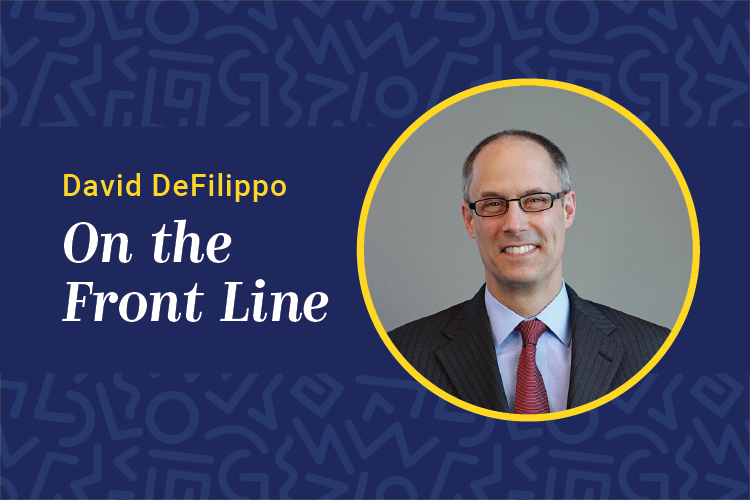“The test of first-rate intelligence is the ability to hold two opposed views in the mind at the same time and still maintain the ability to function.” Over the past couple of years I have often been reminded of author F. Scott Fitzgerald’s words in my role as a chief learning officer at BNY Mellon Asset Management by day, and doctoral student in the PennCLO Program at the University of Pennsylvania’s Graduate School of Education by night.
Let me explain. I am a former high school teacher and coach who left that profession 20 years ago for the business world. Some might argue that the academic and business worlds are opposed to one another, and in the not-too-distant past I might have agreed. For the first time in many years, I have had the opportunity to revisit the academic environment as a student again. My objectives for this month’s column are threefold: to describe this unique academic experience, introduce you to our program colleagues and explain why this form of professional development matters to the learning field.
Being more than 20 years into a career, you might ask, “Why go back to school?” I asked myself this question a few times when I reviewed the coursework. However, I quickly found the answer when I learned about the combination of academic rigor, teaching faculty and the network of practitioner-students like myself who would attend the University of Pennsylvania program.
I have learned from experts and thought leaders such as Peter Cappelli on talent management and Stanton Wortham on learning theory. I’ve had the chance to hear from current and former CLOs such as Martha Soehren, who leads Comcast University, and Nigel Paine, former CLO of the British Broadcasting Corp., who have been tremendously engaging in the true spirit of leadership teaching. These new networks from academia can have a far-reaching impact on corporate learning by bringing more research and rigor to our field.
Further, the informal learning component of this educational experience from my fellow 80 or so alumni and students from around the globe provides an added perspective that I bring back to my day job as a CLO.
With business moving at a faster pace, complexity increasing and demographics creating pressure to both prepare and retain workers, learning professionals need to step up their game. As learning practitioners, we are in the unique position of being teachers and learners in our organizations, so enhancing our practitioner role to become practitioner-students sets the tone for the work we do with our business clients and learning colleagues.
As a practitioner-student, I have developed a few questions that we should perhaps all consider. How are we staying current with our business strategy or industry direction? What research are we reading? Are we considering the right learning theory for the user when we design solutions? Are we using technology to increase performance or just for technology’s sake? How are we using quantitative and qualitative analysis methods to show evidence of learning, or not? These questions are now fundamental in terms of how I do my job.
Our profession can learn much from the research-based tradition of academic institutions. Similarly, our academic institutions can benefit from the learning practitioner’s objective to increase business and employee performance. The academic theories that teach us how to think have a place in the results-oriented business world. We must master our craft and bring theory into practice by making the shift to become practitioner-students.
In our class, I sometimes have a strong sense that our professors look out at this diverse group from major corporations around the globe, and think: “What the heck do these corporate learning folks do anyway?” And, in those moments, it has been evident to me that although we are students, we are also teachers in discussion with these respected faculty members.
Dave DeFilippo is chief learning officer for BNY Mellon Asset Management and a doctoral student in the PennCLO Program at the University of Pennsylvania. He can be reached at editor@CLOmedia.com.















